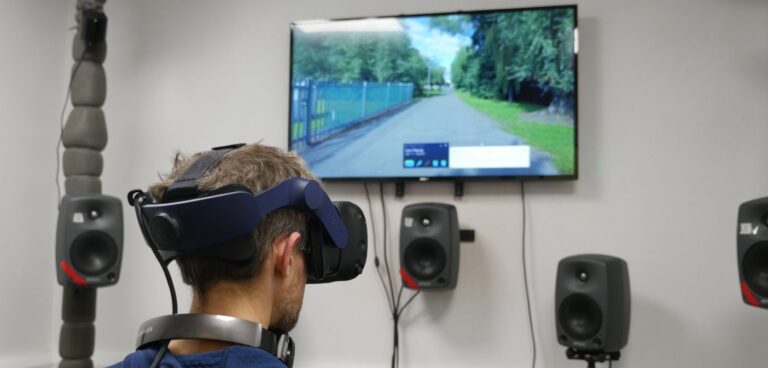Dott, a European micromobility company, plans to test a selection of e-scooter sounds, developed by researchers at the University of Salford and in partnership with the Royal National Institute for Blind People (RNIB), to improve noise visibility of the vehicles and contribute towards finding a universal sound for them.
The organisations claims these tests are the first of their kind, and have lead to the development of three possible choices for sounds to increase vehicle awareness without worsening noise pollution.
During the tests, participants will be asked to wear virtual reality (VR) headsets, which should enable them to explore a 360-degree environment, where they will hear different sounds.
Further tests are planned, in partnership with RNIB and blind and partially-sighted people, for which participants will be asked to identify when they become aware of the presence of e-scooters and name a preference for one of the sounds.
What’s more, tests are set to take place in a laboratory in London, before being replicated in Italy, Sweden and Spain, all of which will be in collaboration with blind associations across Europe, Dott claims.
Other countries are being brought in to the project to support the development of a sound that has global relevance and usability.
Dr Antonio J Torija Martinez, principal investigator, University of Salford, said: “We are testing a series of carefully designed e-scooter sounds to find the right balance between maximum vehicle noticeability and minimum noise pollution.
“Using virtual reality to create immersive and realistic scenarios, in a safe and controlled laboratory environment, will allow us to achieve robust results.
“By working closely with the RNIB and blind associations across Europe, we can ensure that the sound we develop is the best fit for their needs.”
Robin Spinks, RNIB head of inclusive design, said: “Light electric vehicles emit virtually no sound.
“Imagine for a second how terrifying this could be if they are used irresponsibly for someone with little or no sight.
“We’re working with multiple stakeholders across the transport industry to bring about sustainable improvements in safety, perceivability and awareness.
“Operators, researchers, and regulators must all collaborate to assures a more inclusive urban environment for all.”
Following the VR phase, the sounds will be tested on the streets of London and across Europe to validate the laboratory setting findings, those involved have said.





